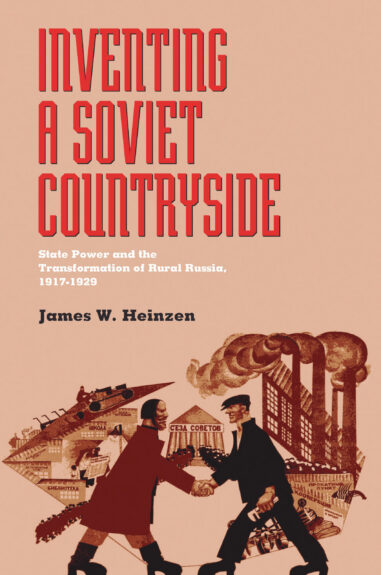

Paperback $55.00
Request Exam or Desk Copy. Request Review Copy
Inventing a Soviet Countryside
State Power and the Transformation of Rural Russia, 1917–1929
James W. Heinzen's work fills a significant gap in the extensive historiography of the New Economic Policy (NEP) . . . The book studies the organization and staffing of NKZem RSFSR, offers some memorable portraits of its leading figures, especially its head, Alexander Petrovich Smirnov, and delves into the complexity of policy making in this era and the clash of institutional interests that had a major impact on policy. . . . Heinzen makes a convincing case that Smirnov and the specialists in NKZem RSFSR were one of the major sources of ideas and policies for the 'Rightists' within the party leadership. . . . The book is distinguished by its thoroughness, and by its cool and balanced judgment. . . . This study brings out the full complexity of the Bolshevik regime, its dilemmas, and its internal contraditions.

